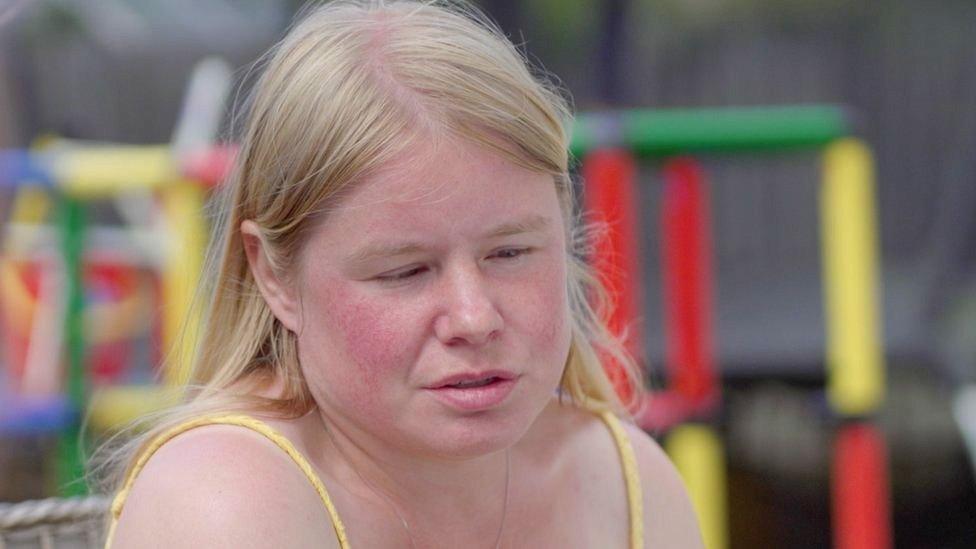Covid and disability: 'I've lost two stone because I can't get food'
- Published
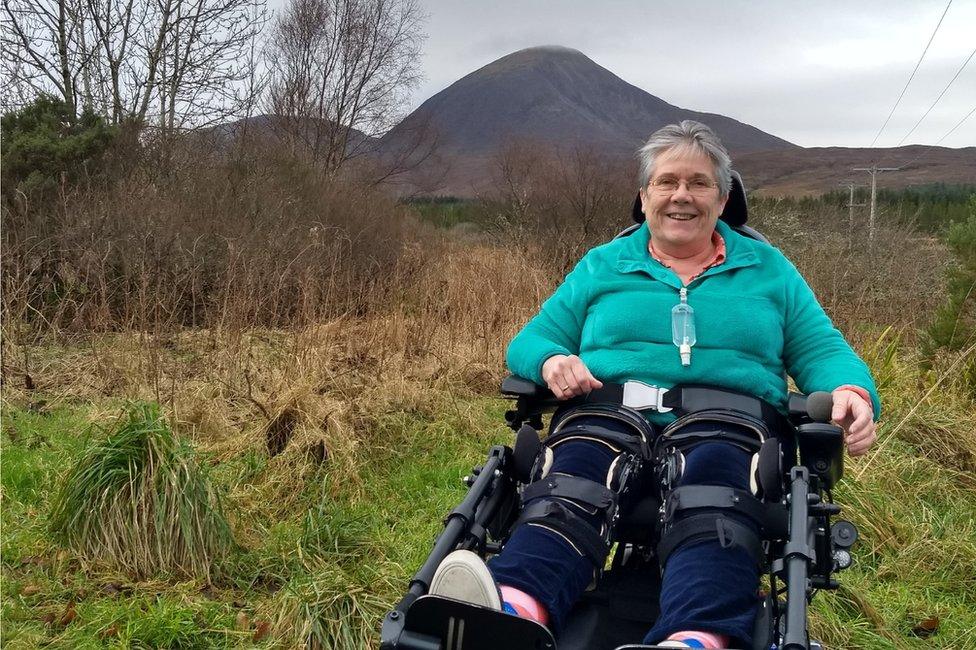
Dr Caroline Gould (PhD) says people with disabilities have been given little consideration during the pandemic - particularly in rural areas
Once a month before the pandemic, Dr Caroline Gould said she would take a 200-mile round trip to acquire all the groceries needed for her bespoke diet.
A resident of Broadford on the Isle of Skye, Caroline has a severe form of Ehlers-Danlos syndrome, which means her body lacks collagen and her joints are prone to dislocating.
On average, she said she has between 40 and 50 joint dislocations or partial dislocations per day.
In addition to this condition, Caroline has other health problems and keeps to a very strict diet. She buys food from a number of different shops around the island - a routine that has been significantly disrupted throughout the pandemic.
"I've now lost around two stone (12.7kg) in weight," she told the BBC. "My condition affects my whole body including my digestive system which is why I have to eat a very restricted diet - and I also have an allergic reaction which has meant that I have had to cut out processed foods.
"My condition also affects all soft tissue - tendons, muscles, ligaments, skin, etc. and my heart. It also causes me to have swallowing problems, choking problems, etc.
"A lot of time has been spent searching online trying to find certain foodstuffs. I simply couldn't get the foods I needed. It has been really stressful and difficult."
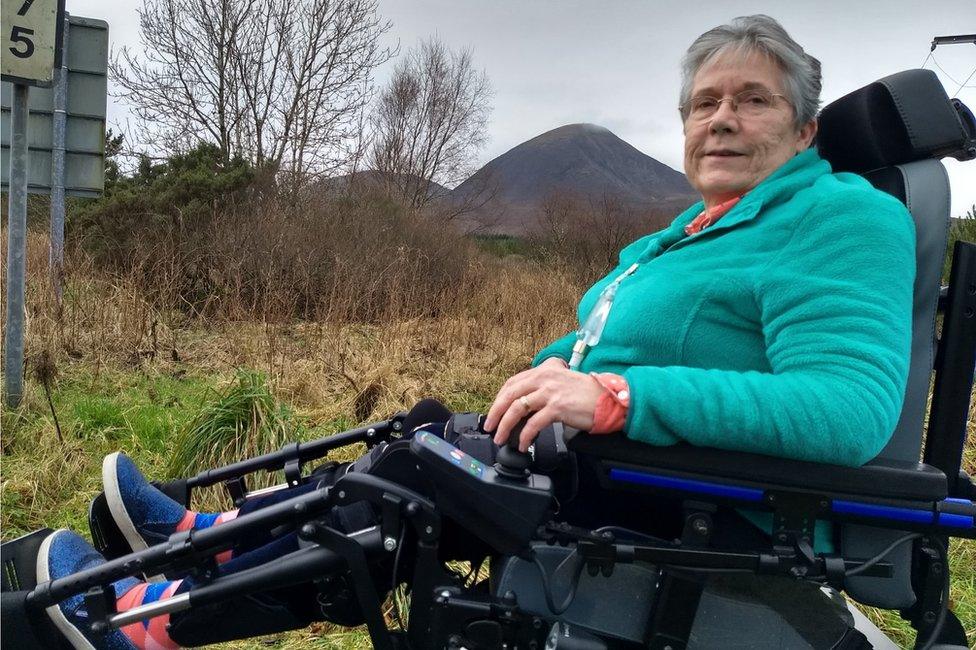
Caroline uses a wheelchair with a recline function to ease the pain of dislocations
A previous BBC investigation heard that not enough consideration was given to disabled people and their complex needs when lockdown came into effect - and this was having a continued impact over the summer.
Caroline, who was one of the 180,000 people in Scotland shielding from March, said this was particularly evident in rural communities which have less frequent grocery deliveries than cities.
In her area she said there were lots of small shops, but not all are accessible - and while some do deliveries, they "don't hold big enough stock" to meet everyone's needs.
"People in rural situations haven't been thought of by people in cities who make the decisions," she said. "They just seem to have assumed if it works in the city, it works everywhere else.
"Only one supermarket delivers to the door in some of Skye - not all of Skye.
"I think there's been very little indication by either Westminster or Scottish governments that they show any understanding for disabled people."
'People feel their life has no value'
As an accessibility auditor for Skye and Lochalsh, Caroline regularly hears about the experiences of vulnerable people and those with disabilities in the local community.
She said because it was common for people in rural areas to have multiple part-time jobs, people who required home care on Skye had chosen to reduce their service in case carers picked up the virus elsewhere.
Caroline also said she and others had struggled to get information from the NHS about their care because staff were "so busy" dealing with the pandemic.
She said: "I think the thing a lot of people have had to cope with has been loneliness.
"A lot of the feeling that I'm getting from other disabled people contacting me, is they feel their life has no value and their needs haven't been considered and they have struggled and struggled and struggled."
Over the course of the pandemic the BBC has heard from many people living with disabilities about the difficulties they have faced as a direct or indirect result of measures put in place to cope with coronavirus.
'We're back in the 1970s'
Disability lawyer Daniel Donaldson, principal solicitor at Legal Spark, has now said he will "likely" pursue a judicial review of the Scottish government's actions which allegedly discriminate against disabled people.
He told the BBC that the government had failed to carry out the law in line with the Equality Act and effectively "retrograded disability equality".
"We're back in the position we were in in 1970s," he said. "That's all a consequence of government and other public authorities ignoring the Equality Act and being able to get away with it because no one is willing to enforce legislation."
Even out with the pandemic, Caroline is reminded of equality issues in her daily work assessing the accessibility of services - she is concerned that Scotland is failing to make basic standards "future proof".
She said: "I think it's going to be very difficult for disabled people to get their rights. The minimum building standards only allow a 1.5 metre turning circle for a wheelchair yet we have wheelchairs here that use 2.2 metre turning circles.
"Things are passed through building works that are never going to be future-proofed because over time wheelchairs are getting bigger and bigger because they carry more equipment.
"If we're going to build for the minimum standards, we're never going to achieve anything remotely like what disabled people need."
You can hear more from Caroline and many other people in Scotland living with a disability in Disclosure's special report on BBC Radio Scotland.
- Published27 April 2020
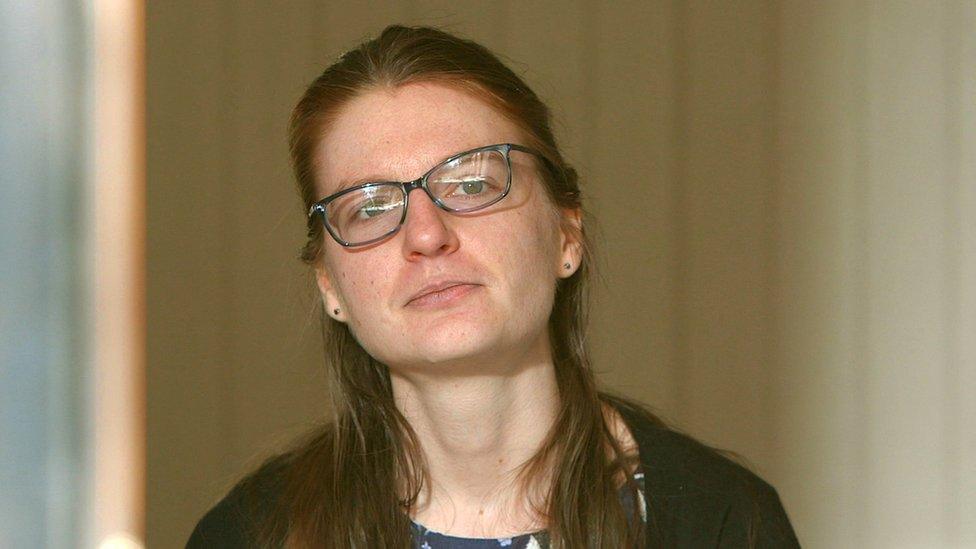
- Published20 October 2020
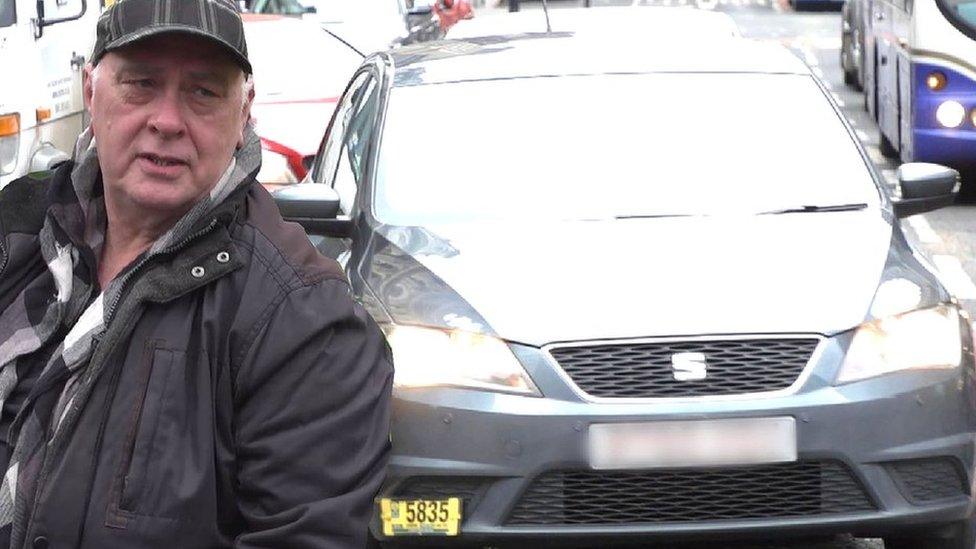
- Published24 August 2020
